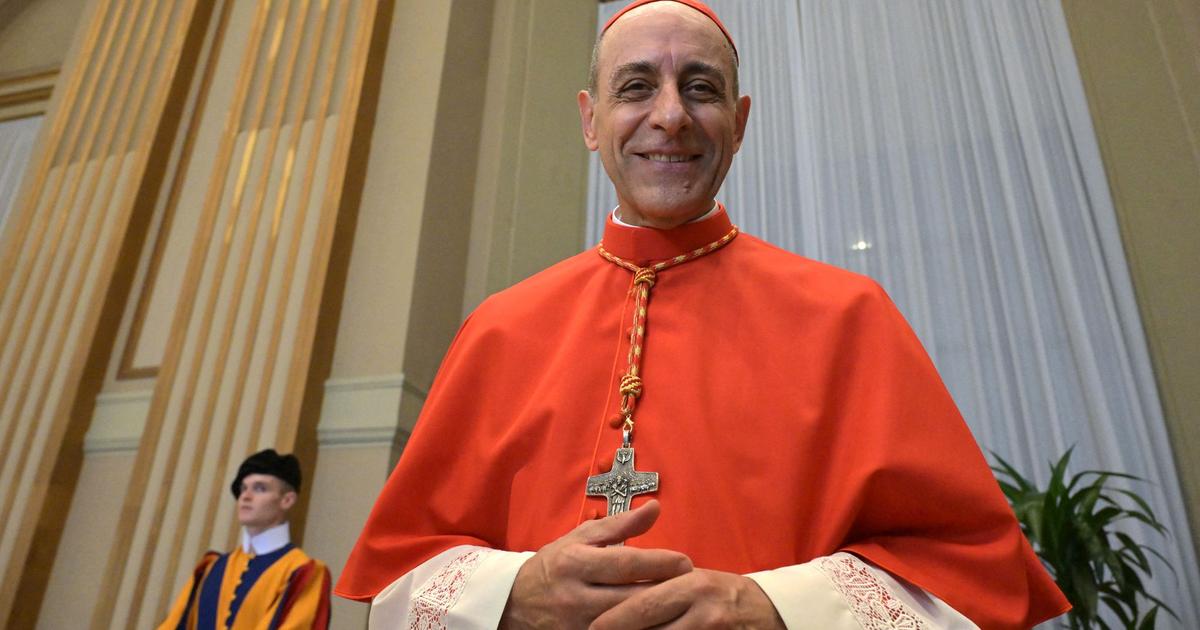Enlarge image
Bishop Heinrich Timmerevers (2020): sees “actual evidence” for the abuse allegations
Photo:
Sebastian Willnow / dpa
For the time being, two Catholic religious from Baden-Württemberg are no longer allowed to be active in the diocese of Dresden-Meißen.
Bishop Heinrich Timmerevers had banned the men from the Pallottino Order from serving in the diocese because of suspected acts of abuse, said a spokesman for the Episcopal Ordinariate in Dresden.
According to reports in the "Sächsische Zeitung" (Dresden) and the "Badische Zeitung" (Freiburg), one of them is said to have abused a then 22-year-old from Saxony in 1990 and the other covered this up when the religious were living in a monastery in Bavaria .
In dealing with the two members of the order, however, the Bishop Timmerevers in the diocese of Dresden-Meißen takes a different path than the Archbishop of Freiburg, Stephan Burger.
Because although the two religious are no longer allowed to be active in Dresden-Meißen, according to the reports in the ordinariate in Freiburg one sees no reason against their commitment as pastors.
Under criminal law, the case of the two men, who, according to Domradio, live in the Archdiocese of Freiburg, is statute-barred and the Congregation for Clergy in the Vatican has finally found no wrongdoing on the part of the accused, it is said.
Recommendation instead of a ban in Freiburg
"It is also true for church employees that an accusation must at least be plausible in order to draw disciplinary and / or canonical consequences," several media quoted a spokesman for the archdiocese.
"The Diocese of Dresden-Meißen and the Archdiocese of Freiburg differ in their assessment of this situation."
However, because Timmerevers sees "actual evidence" for the allegations of abuse, he has decreed after canonical examination that the religious in the diocese of Dresden-Meißen, which extends as far as East Thuringia, are not allowed to hold a retreat - as long as the requirements of No. 52 of the Ordinance on Dealing with Cases of Abuse the German Bishops' Conference have not been proven.
"This is to ensure that minors or adults in need of protection or assistance are not exposed to any danger," said the diocese spokesman in East Germany, according to the media.
Timmerevers had to decide "in relation to the welfare of the faithful entrusted to him in his diocese".
He was on the "side of those affected" and trusted the information.
Both dioceses are said to have done more than prescribed
Why the two dioceses come to a different interpretation of the order is unclear.
The new debate about how to deal with another abuse case comes at an inopportune time for the Catholic Church in Germany.
Only a few weeks ago, the Archdiocese of Cologne tried to resolve a long-term dispute about its handling of abuse victims with the help of expert opinions.
The Freiburg Archdiocese has also reportedly stated that it takes any allegation of sexual abuse very seriously and that it stands up for those affected.
In order to forbid them the retreat, however, there was no state or church condemnation of the men.
However, it is reported that the order has been advised not to appoint one of the accused, who occasionally works near Constance, which is part of the Archdiocese of Freiburg, for this purpose - because of the current public debate.
But the orders themselves would decide on the use of their members.
According to media reports, the spokesman for the Freiburg archdiocese said that both bishops had done more than prescribed in the case.
Finally, the allegations were reported to the Congregation for the Doctrine of the Faith, although this was not mandatory.
At the time of the crime, the main accused was not a cleric and the woman was an adult and, after a Roman examination, did not need protection.
However, she was offered a procedure for so-called recognition services.
apr / dpa




/cloudfront-eu-central-1.images.arcpublishing.com/prisa/2LRPBTQQ4E4LXICPWKPWK2HCIQ.jpg)
/cloudfront-eu-central-1.images.arcpublishing.com/prisa/CDLMN2QW2RHKPMWXAHXMURZ2NA.jpeg)


/cloudfront-eu-central-1.images.arcpublishing.com/prisa/LMJGKBBBMRUMLZ75Z2RTYPWCPQ.jpg)






